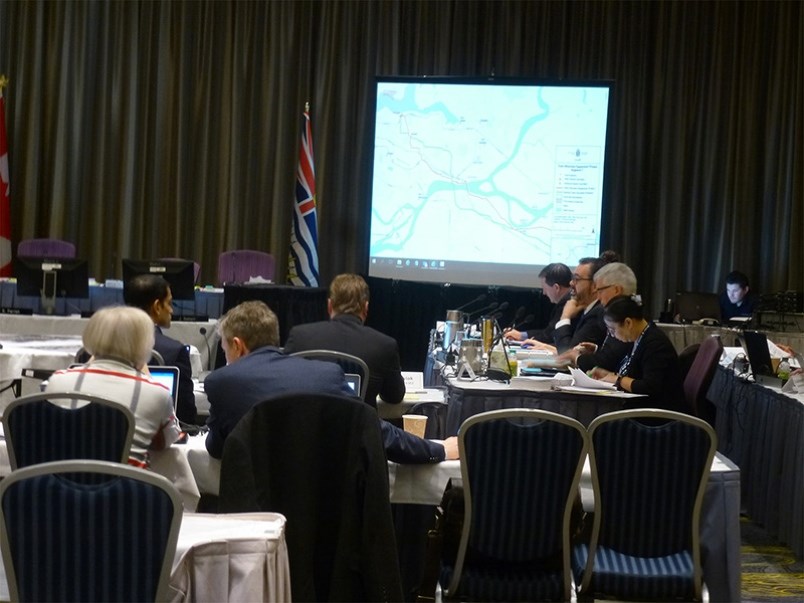The city of Coquitlam has lost its bid to get a different route than is planned for the Trans Mountain pipeline expansion because of lack of evidence that alternative routes were better.
The National Energy Board (NEB) published its decision this week, stating that the applied-for route through the United Boulevard business district is the “best possible” and balances safety, engineering and environmental factors, and will have the least impact on businesses.
The Kinder Morgan Trans Mountain Expansion project is a $7.4-billion plan to twin the existing pipeline from Alberta to the B.C. coast, including a route from the Fraser River through the city.
(It has also been hugely controversial, drawing hundreds of demonstrators to Kinder Morgan's site in Burnaby and prompting a war of words between B.C. Premier John Horgan and his Alberta counterpart, Rachel Notley, which resulted in a meeting Sunday in Ottawa between the two and Prime Minister Justin Trudeau.)
In January, the city’s lawyers argued before the NEB that the pipeline route under roads in the United Boulevard area would add $59 million to city maintenance costs over 50 years, based on previous experience dealing with the existing oil pipeline and and expected repair issues because of problems with soil.
The city’s legal team suggested the route should go through parking lots fronting business or boulevards instead to avoid roads.
But the NEB said that bringing up the alternative routes for the first time at the hearing meant they couldn’t be tested and there were no conversations about them with businesses that might have been affected.
Coquitlam had expressed concerns that delays in getting approval to do repairs near the pipeline in the future will add to its costs. But in its decision, the NEB stated that those costs were adequately addressed in the certificate hearing stage for the project.
Trans Mountain is also under legal obligation to meet conditions and commitments, the NEB stated, and increasing compensation for the city was outside the scope of the hearing.
While delays in obtaining approval to do work around the pipeline might be inconvenient, they are not a reason to deny the proposed route and are in fact normal practice which all cities face when dealing with utilities near city infrastructure, the NEB stated.
As well, the NEB noted in its decision that construction challenges for the pipeline, such as unstable soils and working around a former landfill, while challenging, were not insurmountable and the company is obligated to manage and mitigate its impact on municipal infrastructure.
• You can read the full NEB decision online.



